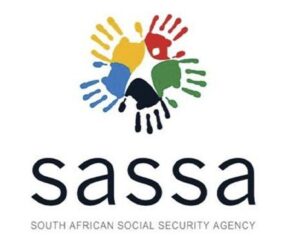A recent review of South Africa’s Child Support Grant has underscored the pressing need for an increase in grant amounts to combat the persistent issue of child poverty in the country. The study, conducted by the Children’s Institute at the University of Cape Town and commissioned by the National Department of Social Development in 2021, has evaluated the current state of child poverty and proposed measures to address this critical issue.
The Current State of Child Poverty
In South Africa, the Child Support Grant reaches a substantial portion of children, with 65% of them receiving this form of assistance. However, the startling fact remains that more than seven million children in the country still live below the food poverty line, set at R663 per person per month. Despite the grant’s efficacy in targeting impoverished children, its current monthly amount of R510 per child falls short in alleviating the dire conditions many children face.
The Report’s Findings and Recommendations
The report acknowledges the Child Support Grant’s success in reaching a large number of disadvantaged children with relative ease, highlighting its effectiveness as a pro-poor initiative. However, it strongly emphasizes that the grant, in its current form, is inadequate to shield the most vulnerable children from the perils of hunger, malnutrition, and stunting. Shockingly, the report reveals that 27% of children under the age of five suffer from stunted growth.
Impact of Increasing the Grant
To better comprehend the impact of increasing the Child Support Grant, the report explores several scenarios. Maintaining the grant at its current value and adjusting it only for inflation is predicted to exacerbate child poverty. In such a case, the government may face legal challenges for failing in its constitutional duty to provide for children’s basic needs, and international scrutiny would intensify.
However, increasing the grant to match the food poverty line of R663 per person per month could reduce child food poverty from approximately 33% to 25%, resulting in lower rates of child hunger, malnutrition, and stunting. Notably, this adjustment is less likely to expose the government to litigation risk.
Further increases aligned with the lower bound poverty line of R945 per person per month could halve child food poverty rates, and reaching the upper bound poverty line of R1,417 per person per month could nearly eliminate child food poverty.
The Road Forward: A Phased Approach
Recognizing the government’s budget constraints, the report suggests a phased approach to increasing the Child Support Grant. Gradual top-ups to the existing grant amount every year could mitigate national budget shocks. However, it’s essential to note that this approach may diminish the grant’s immediate poverty reduction impact due to the time delay in implementing changes.
A Cautionary Note
While advocating for an increase in the Child Support Grant, the report also highlights the importance of not sacrificing existing grants that have demonstrated effectiveness, such as the Child Support Grant itself, to establish new grants for unemployed adults. The Department of Social Development is currently promoting a Basic Income Grant for unemployed adults, and the report urges careful consideration to ensure that the rights and welfare of children are not compromised.
International Support for an Increase
The call for an increase in the Child Support Grant has not gone unnoticed on the international stage. Organizations like the UN Committee on the Rights of the Child, the UN Committee on Economic, Social and Cultural Rights, and the African Committee of Experts on the Rights and Welfare of the Child have also recommended such an increase.
In conclusion, the review of South Africa’s Child Support Grant serves as a stark reminder of the urgent need to address child poverty in the country. The report’s recommendations offer a thoughtful path forward, balancing the government’s budgetary constraints with the imperative to provide a better future for South Africa’s most vulnerable citizens—the children.














